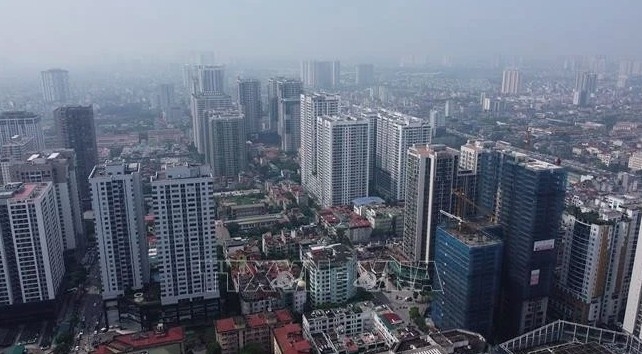52 provincial-level administrative units to be reorganised: draft resolution
The Ministry of Home Affairs has completed a National Assembly Standing Committee draft resolution on the re-organisation of administrative units to submit to the Ministry of Justice for verification.

According to the draft resolution, the criteria for restructuring provincial- and communal-level administrative units are aligned with the six key criteria previously considered and agreed upon by the Politburo.
These criteria cover the natural area; population scale; historical, cultural, religious, and ethnic factors; geo-economic characteristics (including geographical location, and the scale and level of economic development); geopolitical factors; and national defence and security considerations.
The draft also stipulates that administrative units with isolated locations and limited transport connectivity with adjacent administrative units, as well as those holding special importance to national defence and security, will not be compulsorily subject to re-organisation.
Based on these criteria, 52 provincial-level administrative units are set to be re-organised, comprising four cities – Hai Phong, Ho Chi Minh City, Da Nang, and Can Tho, and 48 provinces – Ha Nam, Hung Yen, Vinh Phuc, Bac Ninh, Thai Binh, Hai Duong, Nam Dinh, Ninh Binh, Bac Kan, Thai Nguyen, Phu Tho, Bac Giang, Hoa Binh, Tuyen Quang, Lao Cai, Yen Bai, Ha Giang, Ninh Thuan, Quang Tri, Phu Yen, Quang Binh, Quang Ngai, Khanh Hoa, Dak Nong, Tay Ninh, Binh Duong, Binh Thuan, Binh Phuoc, Ba Ria - Vung Tau, Ben Tre, Bac Lieu, Vinh Long, Hau Giang, Tra Vinh, Tien Giang, Soc Trang, Dong Thap, An Giang, Long An, Ca Mau, Quang Nam, Binh Dinh, Dak Lak, Dong Nai, Gia Lai, Kon Tum, Lam Dong, and Kien Giang.
Meanwhile, 11 provinces and centrally-run cities are excluded from restructuring. They comprise Hanoi, Hue, Lai Chau, Dien Bien, Son La, Lang Son, Cao Bang, Quang Ninh, Thanh Hoa, Nghe An, and Ha Tinh.
At the communal level, 9,996 out of the 10,035 administrative units nationwide will undergo restructuring. The draft resolution mandates that following the restructuring, the number of communes and wards in each province and city will decrease by at least 70%, and by no more than 75%, compared to the current total number of communal-level administrative units in that province/city.
The draft also outlines the principle that administrative unit re-organisation must be connected with the reform and streamlining of the political system's apparatus to ensure effective and efficient operations. The move needs to capitalise on the potential and advantages of localities, expand development space, promote decentralisation, and strengthen the autonomy and accountability of local governments. Additionally, the re-organisation must be carried out in tandem with the restructuring of the administrative workforce, with a focus on improving the quality of officials, civil servants, and public employees across all levels.




